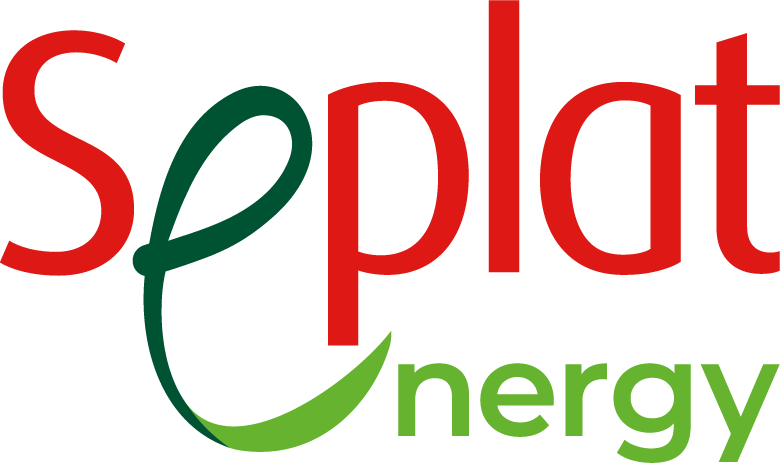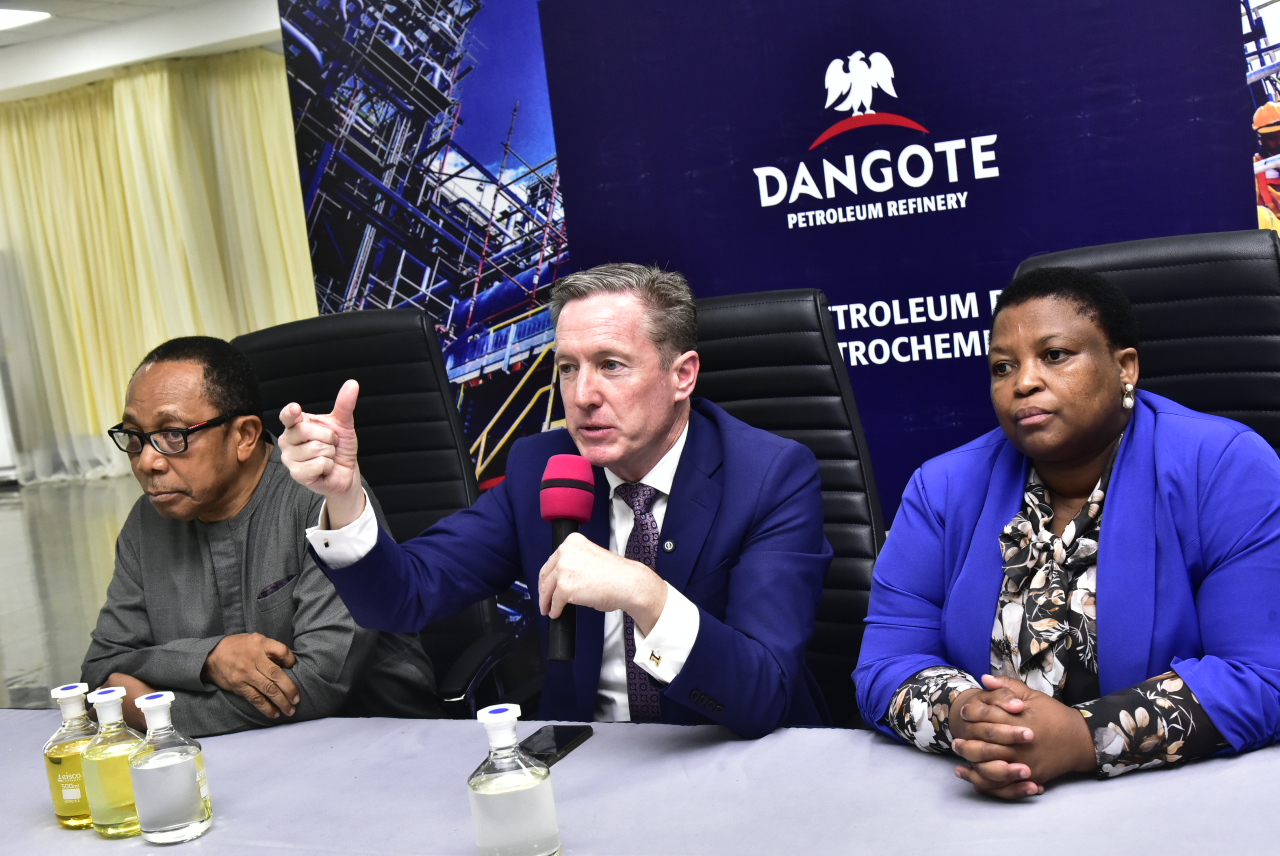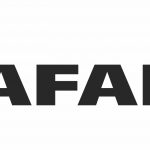Economy
Moody’s Downgrades Seplat, Two Others

By Aduragbemi Omiyale
The ratings of three non-financial corporates in Nigeria have been downgraded by Moody’s Investors Service on the back of the weakening of the federal government’s credit profile.
The affected organisations are Seplat Energy Plc, Dangote Cement Plc, and IHS Holding Limited.
In a statement issued on Friday, the rating agency said it has also repositioned the national scale corporate family rating (CFR) of Dangote Cement to A3.ng from Aa3.ng to reflect the mapping of Global Scale Ratings to National Scale Ratings.
Moody’s noted that though the corporates have relatively prudent financial policies, adequate liquidity, moderate to low leverage and strong business profiles, they are still constrained by the foreign currency country ceiling because they are materially exposed to Nigeria’s economic, political, legal, fiscal and regulatory environment.
Seplat is less exposed to convertibility risk, given most of its revenue is paid in dollars. However, its export dollar oil revenue must be repatriated back into Nigeria within 90 days of receipt, after which Seplat can transfer these US dollar funds back into offshore bank accounts, the rating firm said.
It stated that to date, Seplat has had no restrictions imposed by the Central Bank of Nigeria (CBN), and the company targets 70 per cent of total cash balances in Dollars and 70 per cent of that in offshore accounts.
Seplat’s $650 million senior unsecured notes are due in 2026, and the company has a good liquidity profile supported by $305 million of cash on the balance sheet and full access to the $350 million undrawn revolving credit facility as of September 2022.
As for Dangote Cement, Moody’s said its high proportion of dollar debt in the capital structure exposes the company to currency convertibility risk.
It noted that while the cement firm continues to grow its dollar revenue through exports and repatriation of dollar cash flow from its other African operations, it still relies on the CBN for foreign exchange (FX), which remains restricted.
The company’s liquidity profile is adequate but is exposed to ongoing refinancing risks because of the large portion of short-term debt equal to N326 billion, representing 60 per cent of total debt as of June 30, 2022. It also benefits from strong cash flow generation, with cash balances of N194 billion as of June 30, 2022.
As for IHS, the renowned rating company said its downgrade also reflects exposure to currency convertibility risk, which over time will weaken the company’s liquidity position if it is unable, for a prolonged period, to upstream cash flow generated in Nigeria to the group level.
IHS earns around 67 per cent of its EBITDA from Nigeria, denominated in Naira, but its contracts are either dollar-linked or have Naira CPI pricing escalators that allow the company to pass through most of the cost inflation or currency depreciation it is exposed to.
“Nevertheless, the fact that revenues are invoiced in Naira exposes the company to Dollar shortages in the country and the resulting convertibility risk.
“IHS serves its dollar bonds through cash upstreamed to the group by its international operations, the largest one of which is in Nigeria,” it said.
Moody’s noted that during the six months to June 2022, IHS upstreamed $147 million of cash from Nigeria, in addition to regular upstreams from other operating companies.
It said liquidity remains good and is supported by a cash balance of around $500 million outside of Nigeria as well as a $270 million fully available liquidity facility, which Moody’s expects will provide the company with adequate liquidity for the next 2-3 years even in the case it was unable to upstream any cash flow from Nigeria over this timeframe.
Recall that last week, Moody’s downgraded Nigeria’s local currency country ceiling to B1 from Ba3 and the foreign currency country ceiling to B3 from B2.
Economy
Selective Buying in Bellwether Stocks Further Raises NGX by 1.28%

By Dipo Olowookere
The decision of investors to cherry-pick stocks with sound fundamentals across categories further lifted the Nigerian Exchange (NGX) Limited by 1.28 per cent on Wednesday.
This selective buying of equities was inspired by the earnings season, as companies that have already released their 2025 financial statements have impressed market participants.
However, the insurance sector experienced profit-taking yesterday, causing its index to go down by 0.84 per cent at the close of business.
But this loss was offset by the 2.33 per cent growth achieved by the banking index, with the other remaining sectors also closing in green. The energy industry appreciated by 1.52 per cent, the industrial goods landscape expanded by 1.20 per cent, and the consumer goods counter improved by 1.09 per cent.
As a result, the All-Share Index (ASI) went up by 2,128.61 points to 168,030.18 points from 165,901.57 points and the market capitalization rose by N1.366 trillion to N107.861 trillion from the previous day’s N106.495 trillion.
Yesterday, 53 equities ended on the advancers’ chart and 26 equities finished on the laggards’ table, indicating a positive market breadth index and strong investor sentiment.
DAAR Communications led the gainers’ group after it surged by 10.00 per cent to sell for N1.87, Berger Paints appreciated by 10.00 per cent to N66.00, Fortis Global Insurance advanced by 10.00 per cent to 22 Kobo, RT Briscoe also jumped by 10.00 per cent to N10.45, and First Holdco improved by 9.92 per cent to N48.75.
Conversely, Red Star Express led the losers’ gang after it went down by 9.97 per cent to N17.15, Deap Capital also fell by 9.97 per cent to N6.86, Union Homes REIT slipped by 9.95 per cent to N69.25, McNichols dipped by 9.93 per cent to N6.53, and eTranzact lost 9.89 per cent to trade at N16.85.
At the midweek’s session, traders transacted 694.8 million shares worth N20.6 billion in 42,095 deals compared with the 736.4 million shares valued at N24.7 billion traded in 46,026 deals a day earlier, showing a shortfall in the trading volume, value, and number of deals by 5.65 per cent, 16.60 per cent, and 8.54 per cent, respectively.
Chams ended the day as the busiest stock after trading 57.4 million units worth N256.3 million, Universal Insurance transacted 56.2 million units valued at N88.8 million, First Holdco exchanged 35.3 million units for N1.7 billion, Deap Capital traded 26.8 million units valued at N187.0 million, and Wema Bank sold 26.7 million units worth N674.6 million.
Economy
Oil Prices Climb 3% on US-Iran Talk Jitters

By Adedapo Adesanya
Oil prices surged about 3 per cent on Wednesday after it was reported that planned talks between the United States and Iran on Friday could collapse.
Brent futures grew by $2.13 or 3.16 per cent to $69.46 a barrel, while the US West Texas Intermediate (WTI) futures gained $1.93 or 3.05 per cent to trade at $65.14 per barrel.
The US and Iran had agreed to meet on Friday in Istanbul, with other Middle Eastern countries participating as observers.
However, the Iranians said on Tuesday that they wanted to move the talks to Oman and hold them in a bilateral format, to ensure that they focused only on nuclear issues and not other matters like missiles that are priorities for the US and countries in the region.
US officials were at first open to the request to change the location but then rejected it.
Later, the talks scheduled for Friday were back on, after several Middle Eastern leaders urgently lobbied the Trump administration on Wednesday afternoon not to follow through on threats to walk away.
The talks will be held in Muscat, the capital of Oman, on Friday.
The tensions between the US and Iran and heightened fears of potential disruption to oil flows through the Strait of Hormuz, where 20 per cent of the world’s oil supply passes through.
Members of the Organisation of the Petroleum Exporting Countries (OPEC) such as Saudi Arabia, Iran, the United Arab Emirates, Kuwait and Iraq export most of their crude via the strait.
Recall that the US military on Tuesday shot down an Iranian drone that aggressively approached a US aircraft carrier in the Arabian Sea. Separately, a group of Iranian gunboats approached a US-flagged tanker north of Oman.
The US Energy Information Administration (EIA) said on Wednesday that US crude stocks fell last week as a winter storm gripped large swaths of the country.
US crude oil inventories fell by 3.5 million barrels to 420.3 million barrels last week, as oil output slid to the lowest level since November 2024, the EIA said.
The EIA’s data release follows figures by the American Petroleum Institute (API) that were released a day earlier, which suggested that crude oil inventories fell by a colossal 11.1 million barrels.
Economy
Dangote Refinery Denies Importing Petrol, Diesel into Nigeria

By Modupe Gbadeyanka
Dangote Petroleum Refinery and Petrochemicals has described reports making the rounds that it was importing finished petroleum products like premium motor spirit (PMS), otherwise known as petrol, diesel, and others into Nigeria as false and misleading.
In a chat with newsmen on Wednesday, the company clarified that what it brought into the country were merely intermediate or semi‑processed materials, which it emphasized is a standard practice within the global refining industry.
Intermediate materials—such as naphtha, straight‑run gas oil, vacuum gas oil (VGO), reformate, alkylate and isomerate—serve as feedstock for additional refining into finished fuels like petrol and diesel, as well as petrochemicals.
The chief executive of the facility, Mr David Bird, told journalists in Lagos that as a state‑of‑the‑art and large‑scale merchant refinery, DPRP refines crude oil and processes intermediate feedstocks into premium petroleum products and petrochemicals that meet the highest international standards, noting that this practice does not amount to importing finished petroleum products.
Mr Bird highlighted that Dangote Refinery operates using a European and Asian merchant refinery model, which integrates advanced refining, blending and trading systems designed to meet modern quality and environmental benchmarks.
“DPRP produces high‑quality fuels aligned with international environmental and health standards. Our gasoline is lead‑free and MMT‑free with 50 parts per million sulphur, while our diesel meets ultra‑low sulphur specifications. These standards help reduce emissions, protect engines, and safeguard public health,” the chief executive stated.
Mr Bird reaffirmed that the Dangote Refinery supplies only fully refined, market‑ready products, adding that semi‑finished fuels are unsuitable for vehicles and are therefore not released into the Nigerian market. Samples of both intermediate feedstocks and fully refined products were displayed to journalists during the briefing.
He further noted that the refinery was established to end years of exposure to substandard fuel in Nigeria by providing products that meet stringent global standards, adding that DPRP’s products are now exported to international markets, highlighting their quality and competitiveness.
The refinery chief stressed the company’s commitment to transparency in its operations and engagements with regulators, urging the media to help properly educate the public on the clear distinction between intermediate products and finished fuel.
“It is unfortunate that some individuals are deliberately spreading misleading narratives about a refinery that has transformed Nigeria and the West African region from a dumping ground for substandard fuels into a hub for high‑quality products,” he said, adding that the refinery’s flexible design allows it to process a diverse mix of crude oils and intermediate feedstocks into premium finished fuels.
Mr Bird assured Nigerians of sustained product availability, noting that the refinery has contributed significantly to easing fuel scarcity, stabilising the naira, and reducing pressure on foreign exchange.
On his part, the Chief Brand and Communications Officer of Dangote Industries Limited, Mr Anthony Chiejina, urged journalists to be precise in their choice of terminology, warning that inaccurate reporting could misinform the public and create unnecessary panic.
-

 Feature/OPED6 years ago
Feature/OPED6 years agoDavos was Different this year
-
Travel/Tourism9 years ago
Lagos Seals Western Lodge Hotel In Ikorodu
-

 Showbiz3 years ago
Showbiz3 years agoEstranged Lover Releases Videos of Empress Njamah Bathing
-

 Banking8 years ago
Banking8 years agoSort Codes of GTBank Branches in Nigeria
-

 Economy3 years ago
Economy3 years agoSubsidy Removal: CNG at N130 Per Litre Cheaper Than Petrol—IPMAN
-

 Banking3 years ago
Banking3 years agoSort Codes of UBA Branches in Nigeria
-

 Banking3 years ago
Banking3 years agoFirst Bank Announces Planned Downtime
-

 Sports3 years ago
Sports3 years agoHighest Paid Nigerian Footballer – How Much Do Nigerian Footballers Earn


















